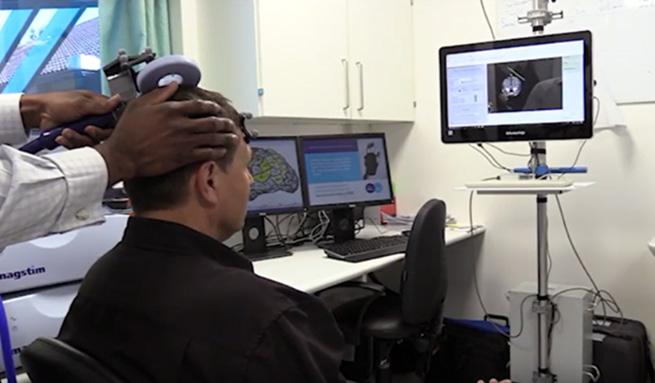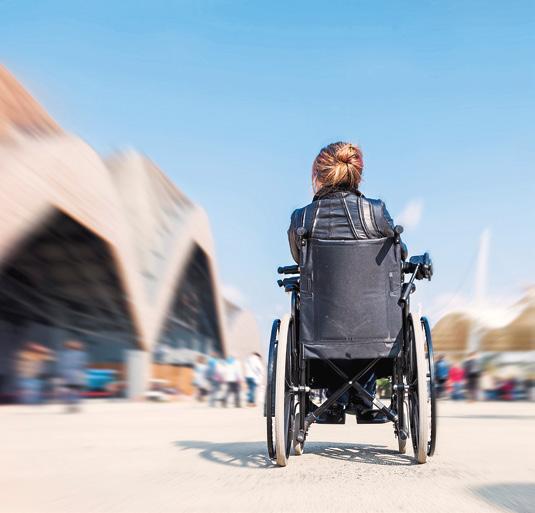
3 minute read
I I TR U O N N T KNOW-HOW
In the last of our three-part series, registered nutritional therapist Marina shows us how to maintain skin health and improve wound healing through our diet
MARINA LOGACHEVA Nutritional therapist @wheelchair_nutrition
Following a spinal cord injury most people are left with skin that is more vulnerable, often leading to pressure ulcers and other skin conditions. Nutrition can be a significant factor for both skin health and pressure ulcer recovery. Combine it with regular skin care, pressure relief techniques and sleeping strategies, and you’ll be armed with a winning plan to protect your skin.
Why our skin is more vulnerable post-SCI

• The loss of nerve connection from the skin to the nervous system below the injury level, makes our skin thinner and more vulnerable
• Slowed circulation (due to lack of muscle function) contributes to slower wound healing below the injury level
• Many people with SCI have vitamin deficiencies which are associated with poor wound healing
• Burns, ulcers and other skin injuries can go unnoticed and/ or untreated for longer due to a decreased sense of pain below the level of injury.
Nutritional strategies to maintain skin health and prevent pressure ulcers
What you eat can significantly affect the health of your skin. Below are the top four changes you can make to your diet to promote good skin health post-SCI
1 1 Protein
Eating protein is essential for the repair of tissues and skin health.
To prevent pressure ulcers, focus on having a serving of protein 2-3 times a day. Good sources of protein include meat, poultry, fish, milk, yoghurt, cheese, eggs, soya, Quorn®, tofu, nuts and seeds and pulses.
2 2 Water
When you’re dehydrated, the skin becomes dry and loses elasticity, which increases the risk of pressure ulcers. The usual ‘8 glasses of water per day’ is a good rough guide. If plain water is not your thing, explore other options, such as coconut water, diluted juices, decaffeinated coffee or herbal teas. Plan drinks into your day as your body may not always tell you that it’s thirsty.
3 3 Fruits and Vegetables
Eat a rainbow of colourful fruits and vegetables and aim for at least 5 or more a day. Aim for half of your plate to be filled with vegetables at each meal. Broccoli, cauliflower and brussels sprouts are all high in Vitamin C and other antioxidants, which help to maintain healthy skin.
4 4 Good fats
High levels of omega-3 fats have been shown to play a central role in the health of the skin. They improve the quality of the skin, reduce inflammation, supply the building blocks for healthy skin cells, maintain the integrity and elasticity of the skin, as well as prevent loss of moisture, which can contribute to skin breakdown. Omega-3 fats are found in walnuts, oily fish (salmon, anchovies, sardines, mackerel) and flax seeds.
Eat a variety of foods every day to get the calories, protein, fluids, vitamins and minerals you need to keep your skin healthy. If you have a poor food intake or can’t manage a varied diet, you should consider taking a multivitamin and mineral supplement, but please discuss this with your spinal consultant or GP before deciding.
Calories
Pressure ulcers increase the energy needs of individuals with SCI. Focus on nourishing foods and avoid foods with a high sugar content, as bacteria thrive on sugar and can make infections worse.
Iron
Iron helps to maintain blood haemoglobin levels and plays a critical role in oxygen transportation. Good sources are meat, fish, eggs, beans, pulses and green vegetables.
Vitamin A
Vitamin A stimulates the growth of the base layer of the skin, maintaining skin integrity. Good sources include meat, fish, dairy, squash, eggs, kale, carrot and sweet potato.
Vitamin C
Vitamin C activates your white blood cells to fight infections. Vitamin C is not stored in the body, so you need to consume it with food every day. It is found in most fruits and vegetables, but is destroyed during the cooking process, so don’t overcook your vegetables. Where possible, steam them.
Zinc
Zinc is important for making new skin tissue, helping wounds to heal. Zinc-rich foods include fish, lean red meat, oats, poultry, nuts, pumpkin seeds and shellfish.
Protein
Increase your protein intake if you already have an ulcer, as it helps to repair body tissues.








